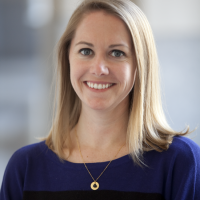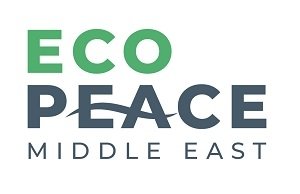Untapped Potential: Women, Leadership, and Water Diplomacy in the Middle East
“We see women playing a critical role in water resource management and decision-making at the family level as well as the community level. However, they’re very often absent from high level water-related negotiations and agreements,” said Merissa Khurma, director of the Wilson Center’s Middle East Program (MEP), introducing a Wilson Center event on the inclusion of women in water leadership and diplomacy in the Middle East, co-hosted by the Environmental Change and Security Program, MEP, and EcoPeace Middle East.
Strengthening Water Diplomacy through Inclusion and Understanding the Local Context
“Often we are asked the question, why women and water diplomacy,” said Natasha Carmi, Lead Water Specialist, Geneva Water Hub. “And from my perspective, as a practitioner in the field, I find that the actual question that should be asked is, how can water diplomacy actually be more effective with the inclusion of all stakeholders, mainly women?”
Women are often involved in resolving local disputes and play instrumental roles as mediators in local context but their perspectives are often missing from high-level discussions, said Martina Klimes, Advisor for Water and Peace at Stockholm International Water Institute. According to the Council on Foreign Relations’ Data, between 1992 and 2019, women constituted just 13 percent of negotiators, 6 percent of mediators, and 6 percent of signatories in major peace processes worldwide. When women participate in negotiations, they are able to connect with their counterparts in a different way than the men are able to, increasing understanding at the negotiation table and building a stronger negotiating team, said Klimes.
Women’s participation can also help increase understanding and inclusion of local context and the local perspectives. Maysoon Al-Zoubi spoke of her experience as Secretary General of Jordan’s Ministry of Water and Irrigation. As Secretary General, she established the Highland Water Forum to push for the inclusion of local farmers and stakeholders. She ensured that the Jordanian Government built trust with local actors and that their experiences were included in high-level and ongoing water diplomacy with Israel and Palestine.
Understanding local contexts are especially important considering how definitions of water diplomacy vary from county to county. Carmi shared the results of a 2020 survey of 93 female water experts from Jordan, Lebanon, Palestine, Egypt, and Morocco. The study highlights insights from their expertise and experiences as water experts. For example, in Morocco, cooperation efforts between national sectors and local communities are considered “water diplomacy”—water diplomacy does not extend beyond the national boundaries. In Jordan, the definition of water diplomacy relates to the political context and negotiations with neighboring countries.
Removing Barriers and Adding Support to Women’s Participation
The 93 surveyed female water practitioners are highly qualified, having the education and experience to be in decision-making positions in the public sector, with many holding degrees at the Master’s and PhD levels. Nonetheless, Carmiunderscored that the two main bottlenecks that the respondents reported in the survey were a lack of support from peers—both men and other women—and a lack of opportunities. The respondents also expressed a need for more training and support to improve their diplomacy and international legal skills. In response, the Geneva Water Hub is creating a three-year mentorship and capacity building program for 50 of the women.
Dalit Wolf Golan, Deputy Israeli Director and Regional Development Director of EcoPeace Middle East, spoke about the importance of removing barriers that prevent women from participating in water diplomacy. For instance, by assisting with transportation and supporting a work-life balance through decisions like scheduling meetings when childcare is available can help encourage women’s participation.
It is important to set targets for the participation of women and establish ways to ensure those targets are met, said Golan. EcoPeace requires at least 50 percent of participants in their activities be female, provides training to increase women’s political participation, and features women speakers and experts as role models. Collecting gender-disaggregated data and conducting gender mapping can identify gaps that need to be addressed. Improving target setting and data collection are areas where funders and other third party actors can play an important role, said Golan.
Supportive male colleagues—male champions who understand the importance of women’s inclusion—can also help women advance in their positions and be successful in leadership roles, said Klimes. Providing gender training to dialogue facilitators, who are often men, can help them understand how to be more inclusive of all genders, including women.
Removing these barriers and adding these supports are important for women’s inclusion and for water diplomacy’s effectiveness. Including women at the negotiations table, said Carmi, “is the only way that we could ensure that these negotiations will be successful, inclusive, sustainable, and forward looking.”
Written by Holly Sarkissian, edited by Jill Baggerman and Lauren Risi.
Continue the conversation on Twitter @NewSecurityBeat. Find related coverage of these issues on our blog, NewSecurityBeat.org.
Introduction

Moderator

Panelists
Hosted By

Environmental Change and Security Program
The Environmental Change and Security Program (ECSP) explores the connections between environmental change, health, and population dynamics and their links to conflict, human insecurity, and foreign policy. Read more


Middle East Program
The Wilson Center’s Middle East Program serves as a crucial resource for the policymaking community and beyond, providing analyses and research that helps inform US foreign policymaking, stimulates public debate, and expands knowledge about issues in the wider Middle East and North Africa (MENA) region. Read more

